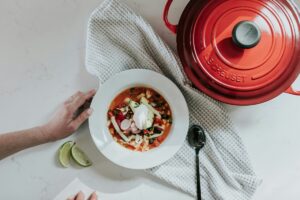Is it normal fatigue or pregnancy anemia?
Many women struggle with anemia during pregnancy. Although it’s a common thing for expectant moms to have low iron levels, it will be something that your doctor wants to address. In most cases, even given your best efforts, a pregnant woman couldn’t eat enough high-iron foods to take care of the problem without taking a supplement. Your doctor will likely prescribe some sort of supplemental iron regimen (and a note here, you should never take additional iron unless a doctor or medical professional tells you to – toxicity could be very dangerous).In addition to taking an iron pill, eating a high-iron diet is also very important and will have the added benefit of increasing your body’s absorption of the supplemental iron. Here’s what you need to know:
Iron-containing foods:
| Iron content | Foods to try |
|---|---|
| Highest |
* beef heart |
| High |
* beet greens |
| Good
|
* asparagus |
Tips to increase iron absorption:
- Your body will absorb iron from meats more easily than from plant sources. Eat iron-containing plant foods (in the ‘high’ and ‘good’ columns above) with meats (in the ‘highest’ column) to maximize absorption.
- Foods high in Vitamin C will help your body better absorb the iron in foods. Eat any of the following foods with any of the iron foods listed above for better absorption.
- Oranges and orange juice
- Leafy green vegetables
- Berries
- Potatoes
- Turnips
- Tomatoes
- Bell peppers
- Broccoli
- Cauliflower
- When drinking tea or coffee, drink it at least 1 hour before or 2 hours after your iron-containing foods. Coffee and tea contain substances that interfere with the way iron is absorbed in the body.
- Cook foods in cast iron pans and skillets.
- Only take iron supplements if instructed to do so by your health care team. Too much iron in the form of supplements can be harmful.
- If you do take iron supplements, take them with foods high in Vitamin C (see list above) and separate them from your prenatal vitamin and any calcium supplement you may be taking by 2 hours or more.
Leslie Judge MS, RD, CSO, LDN



